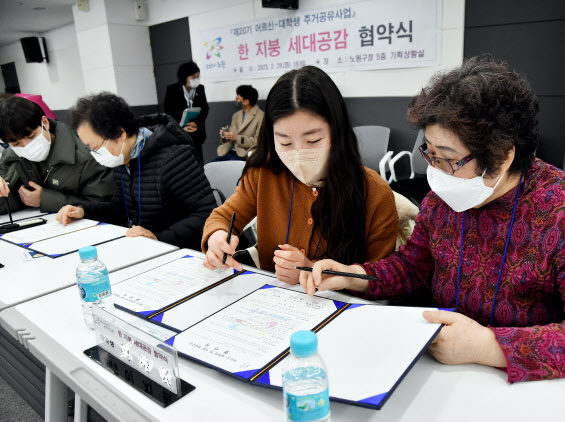
Have you ever heard of the term “Republic of Seoul?” This term sarcastically refers to Korea’s politics, economy, and culture being excessively centralized in Seoul. As of 2023, the Seoul metropolitan area accounted for 50.69% of Korea’s total population, and since then, the percentage has increased. With infrastructure and opportunities concentrated in Seoul, more and more people are choosing to move from other cities to Seoul.
This concentration has also worsened housing problems. The average monthly rent for a studio apartment in Seoul is 670,000 won, while that for a studio apartment near a university is 581,000 won. These prices have become out of reach for many students. Eventually, they choose to live in cramped and uncomfortable gosiwons, accommodations for students studying for exams, because the rent is lower. At the same time, the number of elderly people living and dying alone in Seoul is steadily rising.
To solve these problems, the Seoul Metropolitan Government has been running the “Hanjibung sedae gong gam,” hereinafter referred to as “One Roof Two Generations,” program since 2013. It involves elderly people renting out their spare rooms to university students in areas with high youth populations or near universities. The rooms are offered at a lower rate than the market rate. This program helps students ease housing costs while supporting each other, contributing to their emotional stability.
Eligibility is extended to senior citizens (over 60) who own a home with at least one extra room, and students in Seoul who are currently enrolled or taking a semester off from a university or in a graduate school. Applications are open at any time. *More detailed information is available on the Seoul Housing Portal.
The SeoulTech interviewed a student who participated in the program to hear and learn from her experience. Yunseo Han, who participated in the program for nearly two years, said she appreciated the convenience of the “One Roof Two Generations” program. She said she had relatively low monthly rent, and she appreciated the mutual support she received from senior citizens. However, Han eventually chose to stop using the program due to poor communication and program management by the Nowon-gu office.
Han explained that when she decided to move into another house with the same monthly cost but with better conditions, the senior landlord unexpectedly demanded a deposit. Although she did not ask much for the deposit, Han emphasized, “It was clear that no deposits should be required by the landlords in this program.” She also noted that despite reporting this to the Nowon-gu office, the office refused to intervene and offered no real assistance. “Their response was passive, and no solution was offered even after I filed a complaint,” Han said.
The SeoulTech contacted the Nowon-gu Office to find out what solutions are being implemented regarding these issues, and received the following response:
The Nowon-gu office provides information to the public about the program’s goals. The office also offers details to seniors who wish to participate in the “One Roof Two Generations” program and documents their intent to participate before submitting their applications. During the term specified in the lease agreement, the terms can’t be changed. Furthermore, any deposit requests or unreasonable rent increases are prohibited. If any changes to the contract are necessary at the time of renewal, contact the relevant local government official. We will assist with mediation. However, if an agreement cannot be reached, the contract itself may be untenable, as this is a contract that requires agreement. To prevent Han’s situation from happening again, we will promote the program’s goal of contributing not only to economic benefits, but also to support emotional well-being between generations. This will be a key priority for future residents and will contribute to creating a warm and supportive shared housing environment.
As we finished the interview, the Nowon-gu Office shared the following statement:
This project aims to present a collaborative, community-based housing model in which participants cooperate and support each other. It would be wise to thoroughly discuss and consider potential issues that may arise when seniors and students live together, even when their ages are significantly different, before moving in. Nowon-gu will continue to mediate any disagreements or conflicts that may arise, minimizing any inconvenience.

@Edaily, “Twenty, Seventy-Two, Living Together”
The idea of strangers living together as a family is not easy nor simple. However, sharing and consideration are virtues; if people have the heart to understand and care for one another, they will ultimately move toward a community of harmony and co-existence. Through the efforts of the local government and the integration of different generations—young and elderly— a new family is formed.
Reporter
Hyeonseon Namgung
namgung0121@seoultech.ac.kr


 Comment 0
Comment 0 Posts containing profanity or personal attacks will be deleted
Posts containing profanity or personal attacks will be deleted